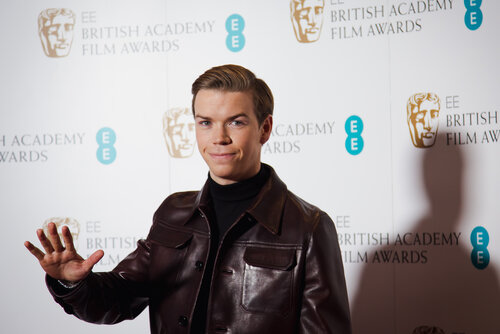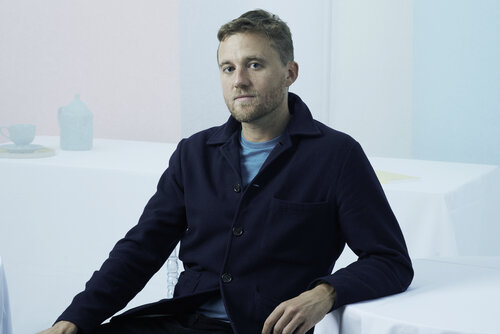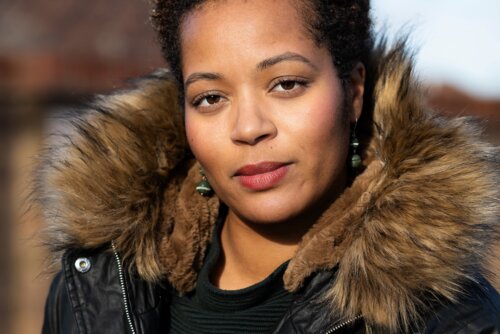Life in the film industry is as varied as they come, with each project bringing new challenges, obstacles and experiences. BAFTA talks to three relatively new practitioners – an actor, director and a producer – all connected to the charity in different ways, about their daily routines when making a film. Interviews by Toby Weidmann
Will Poulter – Actor
 BAFTA/Jamie Simonds
BAFTA/Jamie Simonds
Will Poulter won the EE Rising Star Award at the EE British Academy Film Awards in 2014. He has starred in such theatrical hits as Son of Rambow (2007), We’re the Millers (2013), The Revenant (2015) and Detroit (2017).
What’s a typical day on set like for you?
After I’ve gone into work, normally pretty early, and gone through costume and hair and make-up, and maybe grabbed some breakfast, I’m pretty quiet and on my own. In the lead up to a shoot day, I’m usually looking over my lines. So, it’s probably me and a sheet of paper with a cup of coffee.
On a shoot day – as enjoyable as I find the experience and as much as I love it – emotionally and mentally I find it quite draining and stressful. Just as there’s something addictive about physical exercise, even though it’s strenuous and sometimes painful, I feel the same way about acting. In the breaks between performing, I’m just trying to keep my mind as clear as possible; I make notes on the character and don’t allow too many distractions.
Filming days are fairly long, so in the evenings I’m just trying to wind down and detach, if possible, and make sure I’m prepped for the next day. Then it’s about getting as much sleep as possible.
Do you remember the moment that you decided you wanted to be actor?
I don’t think there was a specific moment. I did take some comfort and confidence from being at school and being able to engage in a subject that I wasn’t totally useless at. It brought me a lot of happiness and, on occasion, brought other people happiness, too. I liked the idea of creating something that maybe would give other people a laugh or move them. The opportunity to affect people emotionally spoke to me more than anything on the academic spectrum.
I tried to get involved in as many school plays and productions as possible and I was very lucky that I had passionate drama teachers and supportive parents.
“The opportunity to affect people emotionally spoke to me more than anything on the academic spectrum.” – Will Poulter
What are your memories of winning the EE Rising Star Award in 2014?
It’s bizarre when anyone refers to me as a BAFTA winner. Truthfully, it’s not something I think about regularly, because I try not to allow it to put me at risk of resting on my laurels or thinking I’m a better actor for it. But I’ve undoubtedly benefitted from that support of BAFTA.
I’m so grateful to have been recognised by an organisation that I’m very proud to say I’m affiliated with, because they do so much work in the interest of representing underrepresented and unheard people and helping them gain entry into the industry. I’m lucky – I had a really supportive experience at home and at school, but I realise that is something not everyone is gifted. I love that BAFTA, as an organisation, dedicates so much time and effort to helping people who don’t necessarily come from the same kind of privilege that I do. To have their support is amazing.
Michael Pearce – Director
 BAFTA/Phil Fisk
BAFTA/Phil Fisk
Michael Pearce won the Outstanding Debut by a British Writer, Director or Producer with Lauren Dark for his first feature, Beast (2018), at this year’s EE British Academy Film Awards. It was also nominated for Outstanding British Film. He has two previous BAFTA nominations in the shorts category, for Rite and Keeping Up with the Joneses in 2011 and 2014 respectively. In 2018, he was named as a BAFTA Breakthrough Brit.
What’s a typical day on set like for you?
You’re communicating with all your departments. Every single hour of the day you’re running across to costumes to check fittings; you’re working with the production designer to make decisions about locations; you’re meeting with the cinematographer to talk about different lighting set-ups; you chat with the actors; you talk a lot with your line producer and first assistant director. You’re talking for about 12 hours and through that you’re wanting to stimulate and energise other people’s ideas and continue to add layers to the film. It’s a lot of conversation and a lot of feeding off each other’s energy.
The director is only as good as the crew around them. Ideally, you’re working with people who not only are on a similar creative frequency to you but also who you like the way they disagree with you, because they challenge your ideas in ways that are unexpected. I’m not looking for my crew to just execute my ideas, but to bounce off them and generate new ideas through collaboration.
What drives you as a director?
It’s a fascination with human behaviour. It’s like the fascination an alien would have if they landed on planet Earth. They would find such a strange and particular varied species, capable of some of the most beautiful, generous and altruistic acts, but also capable of acts of extreme cruelty. Making a film is an attempt to explore those very human questions and invite the audience on that journey. Everyone has a story, so my drive is very human-led, rather than cinema-led.
“Making a film is an attempt to explore those very human questions and invite the audience on that journey.” – Michael Pearce
What’s your Breakthrough Brit experience been like so far?
I’ve only just started getting stuck into it. Having a coffee with Denis Villeneuve was a highlight. He’s one of my heroes. I’m in awe of what he’s achieved, really phenomenal. He was very gracious and let me ask him a thousand questions. I’ve also had a call with Darren Aronofsky, and he was similarly very gracious and allowed me to bombard him with questions. They are both icons of modern cinema.
Rienkje Attoh – Producer

Photo Credit: Rienkje Attoh
In 2013, Rienkje Attoh received one of only three annual Prince William Scholarships in Film, Games and Television, supported by BAFTA and Warner Bros. After finishing her MA in Producing at the NFTS and setting up her own production company, So&So, she became a fully-fledged member of BAFTA in 2018.
What’s a typical day on set like for you?
It’s very early long hours when you’re in the peak of production. You get up early and have meetings with the relevant teams, such as the line producer, the director, the director of photography. We discuss what they want to achieve in the day, because you have to make sure that you can cover everything that’s on the schedule. You also go to see the cast, to make sure they are OK. You’re on set until the camera starts rolling, the turnover.
I like to be very close to the director and the crew, to be available for them. It’s about making sure everything runs smoothly. You have to be really on it as a producer. It can be very draining, because you have to be open and available for anyone who needs you, because it’s about making sure they are getting everything that they need.
“You have to be really on it as a producer. It can be very draining, because you have to be open and available for anyone who needs you.” – Rienkje Attoh
Do you remember the moment that you decided you wanted to be a producer?
I started off as a journalist for the BBC, I was a broadcaster and moved into multimedia. The BBC was really pushing for broadcast journalists to work across multiple medias, so I was on radio but also working online. I bounced between those. I was always a lover of film, but didn’t know how to break into it. I liked telling stories and talking to people, but I didn’t really enjoy going out reporting. However, I did like organising those stories, finding the stories, getting that inspiration. Over the years of working on different platforms, I think producing came naturally to me...
When Inception came out, I remember going to see it with my family and being blown away by it. I came out of the cinema and said to my mum, “That’s it, mum, I’m going to be a producer.” There was no question in my mind after seeing that film. When I knew what I wanted to do, it was then about finding a way in.
Why did you decide to become a BAFTA member?
BAFTA supported me and I admire the work they do. I just wanted to be a role model for people and support BAFTA and the industry in any way that I can. It’s very important to have an academy that reflects the world that I see. As a female of African heritage, I wanted to be part of that. BAFTA did so much for me, so if I can mentor people, if I can help BAFTA in any way, I want to do that. And it’s important to be part of BAFTA as a community. I’ve got nothing but praise for everything it is doing to up representation. It’s really exciting to be part of that era.”





